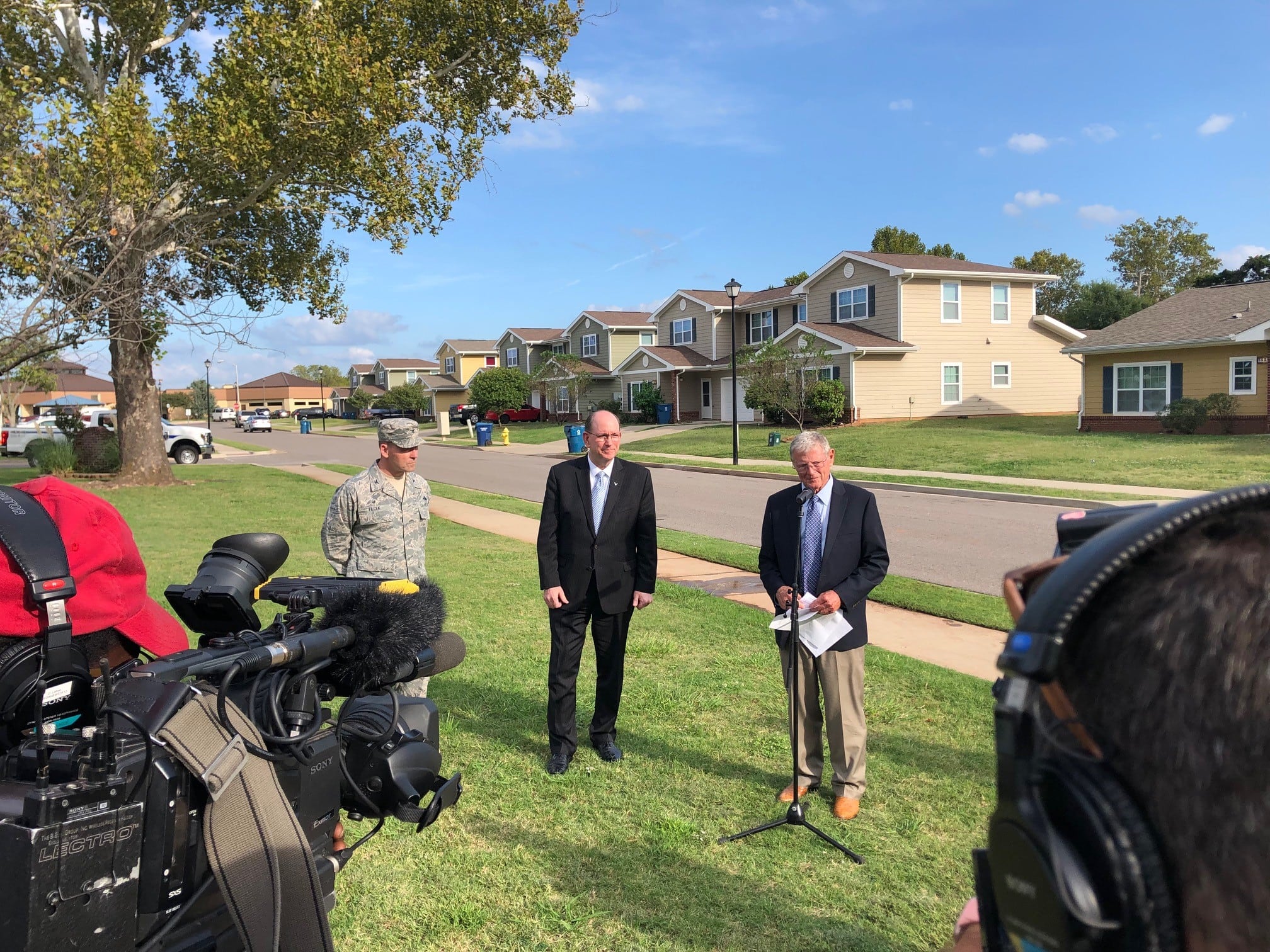Most tenants in military privatized housing now officially have 14 of the 18 rights designed to ensure safe, quality and well-maintained homes, according to a memorandum sent to tenants this week.
Four of the elements in the tenant bill of rights are yet to come: common forms and documents for all housing tenants; dispute resolution; rent withholding; and access to the maintenance history of their housing unit. Information was not available about when the remaining four rights will be available to military families, but the June 1 memo stated DoD has made “significant progress” working with the privatized housing companies to provide these rights.
And there are a few instances where an individual right might not be available at a particular installation, but tenants will be informed about the unique situation at the local level, cautioned W. Jordan Gillis, assistant secretary of defense for sustainment, who signed the memo. According to a DoD press release, most of the first 14 rights were available before May 1, but it took longer than expected to get the required assurances from some of the privatized housing companies for some of the rights. Military Times has been requesting an update on the status since May 21.
It’s been more than a year since military spouses first testified before lawmakers about black mold growing out of the walls, rodents, and water leaks in their family housing, and their frustration dealing with landlords and the military to get it fixed.
A few weeks after that hearing, the service secretaries began drafting a tenant bill of rights, which would, among other things, allow for the tenant’s rent to be withheld from the landlord while the resident’s dispute is being heard by a neutral decision maker. That rent is generally the service member’s Basic Allowance for Housing.
Lawmakers also weighed in with requirements for the tenant bill of rights. Some of the rights required by Congress affect legal matters “that do not lend themselves to unilateral action by the Department,” according to Secretary of Defense Mark Esper and the service secretaries, when they announced the tenant bill of rights Feb. 25. So three key rights — dispute resolution, withholding of rent and access to maintenance history — would be delayed, they said. Lawmakers have criticized the Pentagon’s delay in providing these rights.
While the common forms were expected to be available by May 1 along with 14 other rights, those forms will also be delayed because they are tied to other rights that are in the works, according to the memo to residents signed by Gillis, who is also designated as DoD’s Chief Housing Officer.
The common forms involve creating a universal lease with common terms and schedules that will be applied to all housing projects. Because that universal lease will include dispute resolution and rent withholding, it will take longer to develop the common document, Gillis wrote.
While the processes are being developed, service members and families can work with military officials to resolve housing issues. Tenants should seek assistance from their military housing office, installation leadership or chain of command.
RELATED

The 14 rights in the tenant bill of rights that are available at the vast majority of installations are:
* the right to live in a housing unit and community that meet health and environmental standards;
* the right to working fixtures, appliances and utilities and a community with well-maintained common areas and amenity spaces;
* the right to a written lease with clearly defined rental terms;
* the right to a plain-language briefing before signing a lease and 30 days after move-in, by the housing office, on all rights and responsibilities associated with tenancy;
* the right to have enough time and opportunity to prepare and be present for move-in and move-out inspections;
* the right to report problems with the housing unit to the landlord, chain of command, and housing management office without fear of reprisal or retaliation;
* the right of access to a military tenant advocate or a military legal assistance attorney, to help prepare requests to initiate dispute resolution;
* the right to receive property management services that meet or exceed industry standards, and are performed by professionally and appropriately training and responsive customer service and maintenance staff;
* the right to have multiple, convenient methods to communicate with the landlord maintenance staff, and to receive consistently honest, accurate, straightforward and responsive communications;
* the right to have access to an electronic work order system to request maintenance or repairs and track the progress of the work;
* the right to prompt and professional maintenance and repairs, and to be informed of the required time frame, and to be moved into suitable lodging or other housing at no cost to the tenant when repairs are necessary to ensure habitability of a housing unit;
* the right to get advice from military legal assistance on procedures for resolving disputes and filing claims against the landlord;
* the right to have reasonable, advance notice before the landlord, installation housing staff or chain of command enters the housing unit, unless there’s an emergency or abandonment of the unit;
* the right not to pay non-refundable fees or have application of rent credits arbitrarily held.
Karen has covered military families, quality of life and consumer issues for Military Times for more than 30 years, and is co-author of a chapter on media coverage of military families in the book "A Battle Plan for Supporting Military Families." She previously worked for newspapers in Guam, Norfolk, Jacksonville, Fla., and Athens, Ga.





